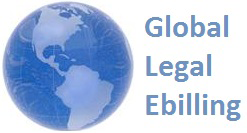It was about six years ago when Nick Puschak, then the Standards Director for the LEDES Oversight Committee, suggested that the organization create an API. The Board agreed that something was needed to create a more efficient legal ebilling process for law firms and to help manage the volume of tasks that need to be completed in the monthly billing cycle.
The first version of the API, created with Nick leading the effort, was ratified and released to the public in 2020 and, shortly thereafter, the subcommittee began working on version 2 of the standard again under Nick’s leadership.
It should be noted that LEDES does not have paid employees. All of our standards efforts are led by volunteers who donate their time. Our subcommittee efforts are often delayed due to competing priorities related to our volunteers’ day jobs. Nick’s retirement in 2022 also presented an additional hurdle with completing the standard.
Fortunately the LOC identified another volunteer to assume the role of Subcommittee Chair, Sherry Askin. We reestablished the subcommittee, reviewed the work completed under Nick’s leadership, and then considered other functionality which needed to be included in this release. By late summer, 2023, the documentation was finalized and a Public Comment survey was established to collect feedback on the standard from the legal community. Once the Public Comment period ended, the final documents needed another look.
Still to do: in January we will submit the final documents to the LEDES Standards Director for review, then to the LEDES Board for ratification.
So what is in API v2 Functionality?
- It changes the names of some common terms in legal ebilling (Client is now Business, Law Firm is now Vendor), in recognition that there are multiple types of entities that could be filling these roles.
- It is intended to facilitate system-to-system transmission of information between the vendor (f/k/a law firm) users and the business (f/k/a Client) systems they are required to use.
- While the API supports the transmission of the LEDES 98B, 98BI, XML Ebilling 2.0x, 2.1x and 2.2x formats. LEDES 2000, officially dropped from support by the LEDES organization in 2022, is not supported.
- The API also establishes a JSON ebilling format that includes each of the data elements found in LEDES 98BI and XML 2.2x but is structured differently than either of these formats.
- It is intended that the JSON invoice will be machine generated and not manually edited.
- It is intended that the JASON invoice will only be utilized by the API and not by vendors submitting invoices via other means.
- The API supports the following objects and functions:*
| Object |
Function |
| Business |
Send Business information |
| Business |
Get Businesses |
| Business |
Get Business Information |
| Vendor |
Send Vendor information |
| Vendor |
Get Vendors |
| Vendor |
Get Vendor Information |
| Location |
Send Location |
| Location |
Get Location information |
| Matter |
Send Business Matter Info |
| Matter |
Get Matters |
| Matter |
Get Matter Information |
| Timekeeper |
Send Timekeeper Info |
| Timekeeper |
Get Timekeeper Info |
| Timekeeper |
Send Timekeeper Rates |
| Timekeeper |
Get Timekeeper Rates |
| Timekeeper |
Send Proposed Timekeeper Rate Status |
| Timekeeper |
Get Proposed Timekeeper Rate Status |
| Invoice Automation |
Send Invoice (LEDES JSON) |
| Invoice Automation |
Get Invoices (LEDES JSON) |
| Invoice Automation |
Get Invoice (LEDES JSON) |
| Invoice Automation |
Resubmit invoice |
| Invoice Automation |
Appeal Invoice |
| Invoice Automation |
Adjust Invoice |
| Invoice Automation |
Send Invoice Attachment |
| Invoice Automation |
Get Invoice Attachments |
| Invoice Automation |
Get Attachment with information |
| Invoice Automation |
Send the status of an invoice |
| Invoice Automation |
Get the status of an invoice |
| Invoice Automation |
Get invoice status changes |
| Invoice Automation |
Invoice Payment |
| Invoice Automation |
Invoice Payment |
| Invoice Automation |
Delete Invoice |
| Invoice LEDES File |
Send Invoice LEDES file |
| Invoice LEDES File |
Send Invoice LEDES file Accrual |
| Invoice LEDES File |
Send Invoice LEDES file Shadow |
| Invoice LEDES File |
Send Invoice LEDES file Resubmit |
| Invoice LEDES File |
Send Invoice LEDES file Appeal |
| Invoice LEDES File |
Send Invoice LEDES file Replace |
| Invoice LEDES File |
Send Invoice Attachment |
| Invoice LEDES File |
Get Invoice Attachment |
| Invoice LEDES File |
Send the Status of an Invoice (LEDES file based) |
| Invoice LEDES File |
Get the Status of an Invoice (LEDES file based) |
| Invoice LEDES File |
Get Invoice Status Changes |
| Invoice LEDES File |
Invoice Payment |
| Invoice LEDES File |
Invoice Payment |
| Invoice LEDES File |
Delete Invoice |
*Information from LEDES.org
We are very excited about the potential of the API and the impact it can have on law firm efficiency. However, it needs to be developed and released before any impact will be felt.
The only way this happens is for vendors to embrace the API and make it part of their system functionality. Here’s what I have seen: the law firm system vendors (back-office financial and time and billing systems that already create LEDES invoice files) are eager to provide the API to their users. The reception by the third-party ebilling vendors has been much more lukewarm, with an undertone of “what’s in it for us?” So if you feel this functionality is important, particularly if you are a Business/Client that requires legal ebilling, please reach out to your ebilling vendor to discuss their plans to add the API.
Look for more information on the API on www.LEDES.org.



